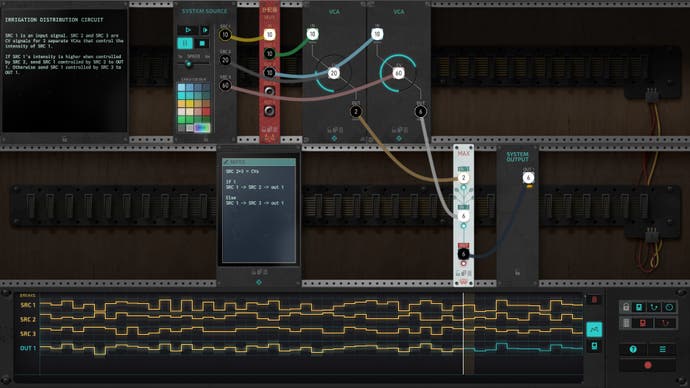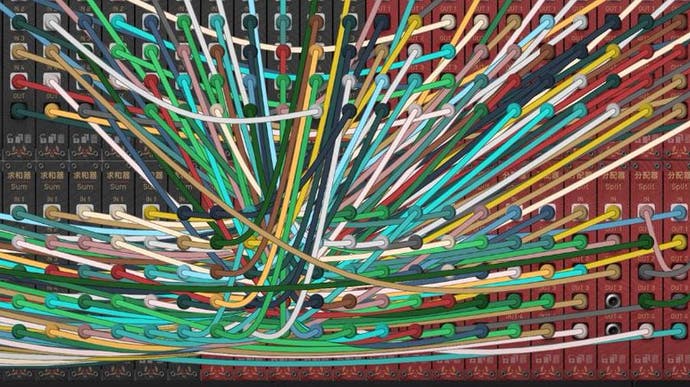Making modular synths a game
Korg blimey.
Amongst the many midlife crises I've stacked up in recent years - most of which have been accelerated by the pandemic - is a growing fascination with the world of synths. It started with one of Teenage Engineering's Pocket Operators, gathered momentum with a Volca then became a thing with a couple of Roland's boutique models - and next thing you know I'm driving a van to Tunbridge Wells to pick up a mint example of Casio's 1985 CZ-5000. Given how it's now hard to move in my shed for it all, it might have started to become a bit of a problem.
I've yet to let modular synths get their hooks into me, with their patch bays offering up a tinkerer's paradise and a surefire way to overnight bankruptcy, but my wallet's grateful that someone's stepped in with a facsimile of the whole thing in The Signal State - a brilliantly tactile puzzler that turns the tangle of cables and muddle of modular units into a challenging, Zachtronics-esque game of logic.
There's a fair bit of something like Shenzen I/O to The Signal State - which means, if you're an idiot like me, it can be hard. Singaporean studio reckoner industries does a good job easing you into it all with a post-apocalyptic story that puts your relationship with the machines you're tinkering with into context, and it provides a nice thread through it all, but there's no hiding the hard-edged nature of this puzzler.
It's about creating circuitous routes as you try and manipulate one value into another via the modules available to you - 'a little bit of logic, a little bit of math', in its own words, which is as good a description of The Signal State as you'll get, and a decent description of what it's like to try and make music with a ragtag collection of synths. If there's any area that The Signal State disappoints is that there's not quite enough musicality to it all - the modular units share a designer with some of Mutable Instruments' own modules, but they don't really generate any music, making The Signal State all about the logic and math without any of the fun stuff that comes from tinkering with synths.

That aside, it's an impeccable puzzler that's well-crafted and worth playing. One of the only real gripes around its launch last year was that it was quite a slim thing, but an update last week added a puzzle workshop that lets you create and share your own logic tests which now makes it near endless. It's a fun thing to tinker with itself, and I've been popping back and forth since the update and enjoying fiddling around to see what's what. It might even have given me the appetite to get a modular synth of my own. Oh dear...


